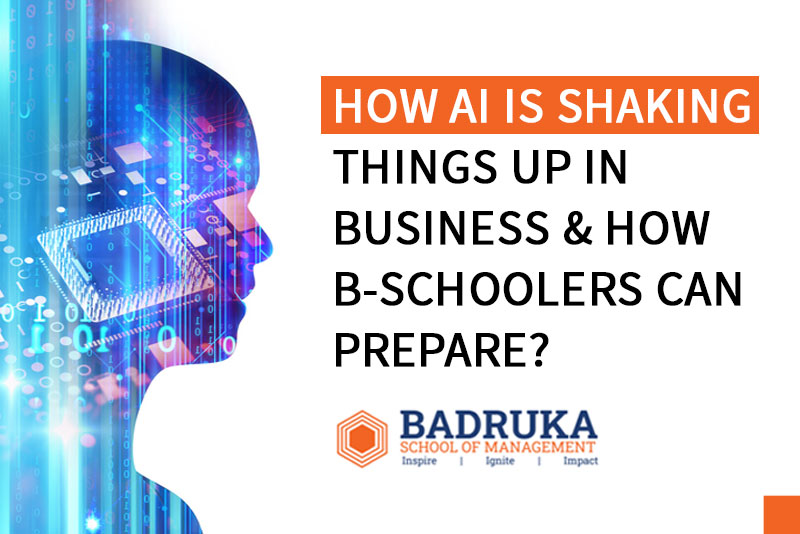Introduction
In today’s rapidly evolving landscape, the integration of artificial intelligence (AI) into business operations has become inevitable. Understanding AI’s influence on business dynamics is crucial for adapting and thriving in this digital era. This article delves into the profound impact of AI on various industries and provides insights into how business students can prepare themselves for the AI-driven future.
AI’s Influence on Business Operations
Enhancing Efficiency and Automation
- AI-powered automation streamlines repetitive tasks, enhancing efficiency and reducing operational costs for businesses. Tasks like data entry, customer support, and inventory management are now handled more efficiently through AI systems.
- Reference: “The AI Advantage: How to Put the Artificial Intelligence Revolution to Work” by Thomas H. Davenport
Personalization and Customer Experience:
- AI algorithms personalize customer experiences by analyzing data on past interactions, preferences, and demographics. Chatbots, recommendation systems, and virtual assistants enhance customer satisfaction and loyalty.
- Reference: “The Business of AI: An MIT Press Collection” edited by Erik Brynjolfsson and Andrew McAfee
Streamlining Customer Service
AI-driven chatbots and virtual assistants are revolutionizing customer service by providing instantaneous support and personalized experiences round the clock. Through natural language processing (NLP) and sentiment analysis, businesses can engage with customers seamlessly and address their inquiries promptly.
AI’s Impact on Various Industries
Retail and E-Commerce
In the retail sector, AI algorithms analyze consumer behavior and preferences to deliver tailored recommendations and optimize pricing strategies. Moreover, AI-powered inventory management systems ensure efficient stock replenishment and minimize wastage, leading to cost savings and improved customer satisfaction.
Healthcare
AI innovations have transformed healthcare delivery by enabling early disease detection, personalized treatment plans, and predictive healthcare analytics. From medical imaging to drug discovery, AI algorithms are revolutionizing every facet of the healthcare ecosystem, enhancing patient outcomes and reducing healthcare costs.
Finance and Banking
In the finance industry, AI algorithms detect fraudulent activities, assess credit risks, and automate routine transactions, thereby enhancing operational efficiency and mitigating risks. Additionally, AI-powered chatbots and virtual assistants provide personalized financial advice and support, enhancing customer engagement and loyalty.
Preparing B-Schoolers for AI Integration
Incorporating AI into Curriculum
Business schools must revamp their curriculum to incorporate AI-related courses and workshops, ensuring that students acquire the necessary skills and knowledge to thrive in AI-driven workplaces. By offering specialized programs in data science, machine learning, and AI ethics, B-Schools can equip students with the competencies demanded by modern employers.
Developing Data Literacy Skills
In addition to technical skills, B-Schoolers must develop strong data literacy skills to interpret and derive actionable insights from complex datasets. By fostering a data-driven mindset and promoting analytical thinking, B-Schools can empower students to harness the power of data for strategic decision-making.
Emphasizing Soft Skills
While technical proficiency is essential, soft skills such as critical thinking, creativity, and emotional intelligence are equally crucial for success in AI-integrated workplaces. B-Schools should prioritize the development of these interpersonal skills through experiential learning activities, case studies, and collaborative projects.
Addressing Ethical and Social Implications
Ensuring Fairness and Transparency in AI Applications
As AI technologies continue to proliferate, it’s imperative to address ethical concerns surrounding bias, fairness, and transparency. B-Schools should educate students about the ethical implications of AI and instill a sense of responsibility to develop AI solutions that uphold ethical principles and societal values.
Mitigating Job Displacement Concerns
While AI presents unprecedented opportunities for innovation and growth, it also raises concerns about job displacement and workforce disruption. B-Schools should equip students with adaptive skills and a growth mindset to navigate career transitions and thrive in dynamic job markets reshaped by AI.
Promoting Ethical AI Use
To foster responsible AI adoption, B-Schools should advocate for ethical AI governance frameworks and promote interdisciplinary collaboration among business leaders, technologists, and policymakers. By emphasizing the importance of ethical AI use, B-Schools can cultivate future leaders who prioritize societal well-being alongside business success.
FAQs
Conclusion
The proliferation of AI is reshaping the business landscape, presenting both challenges and opportunities for organizations and individuals alike. By understanding AI’s transformative influence and proactively preparing for its integration, B-Schoolers can position themselves as agile and innovative leaders in the AI-driven economy.
References
- Davenport, Thomas H. “The AI Advantage: How to Put the Artificial Intelligence Revolution to Work”
- Agrawal, Ajay, Gans, Joshua, and Goldfarb, Avi. “Prediction Machines: The Simple Economics of Artificial Intelligence”




